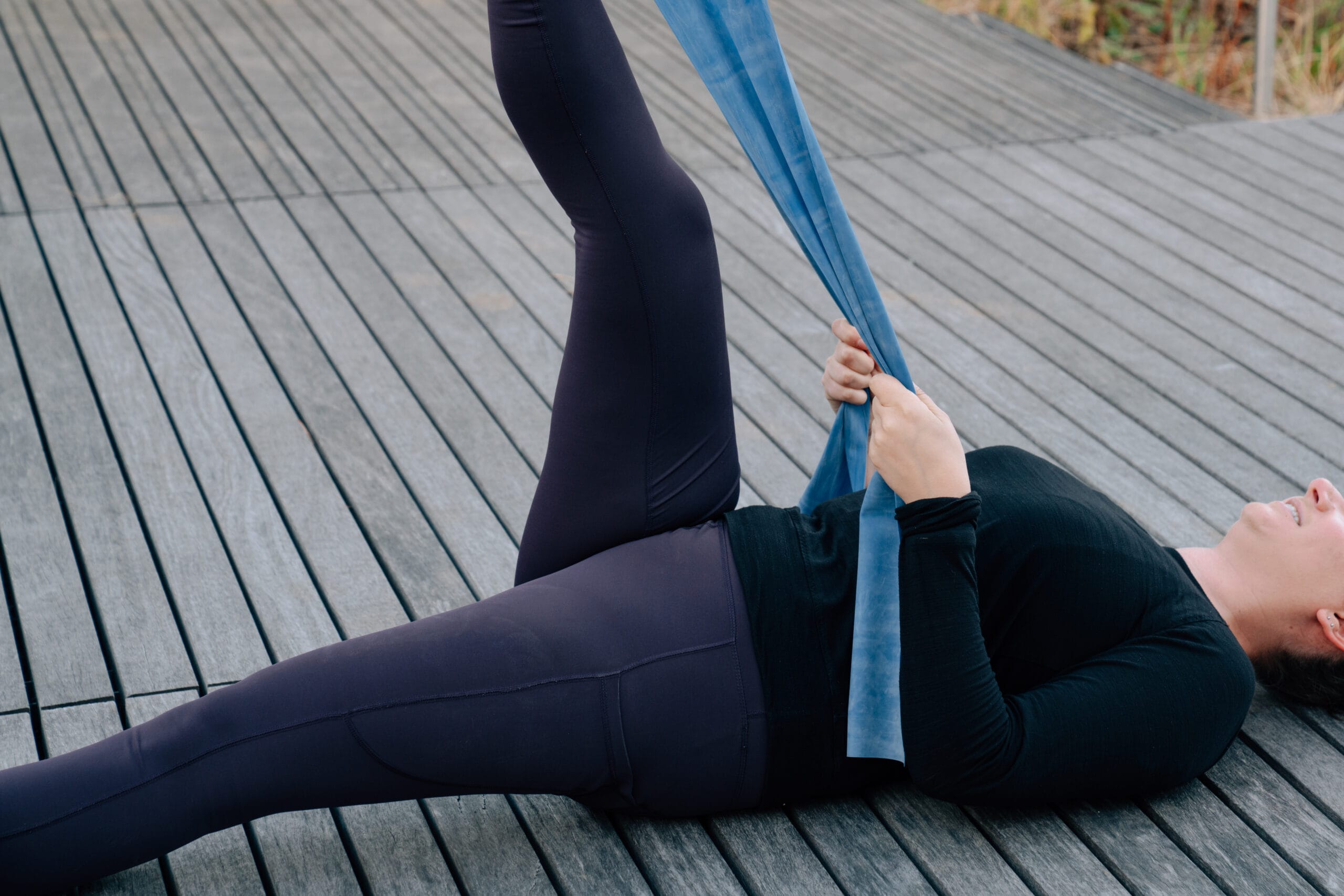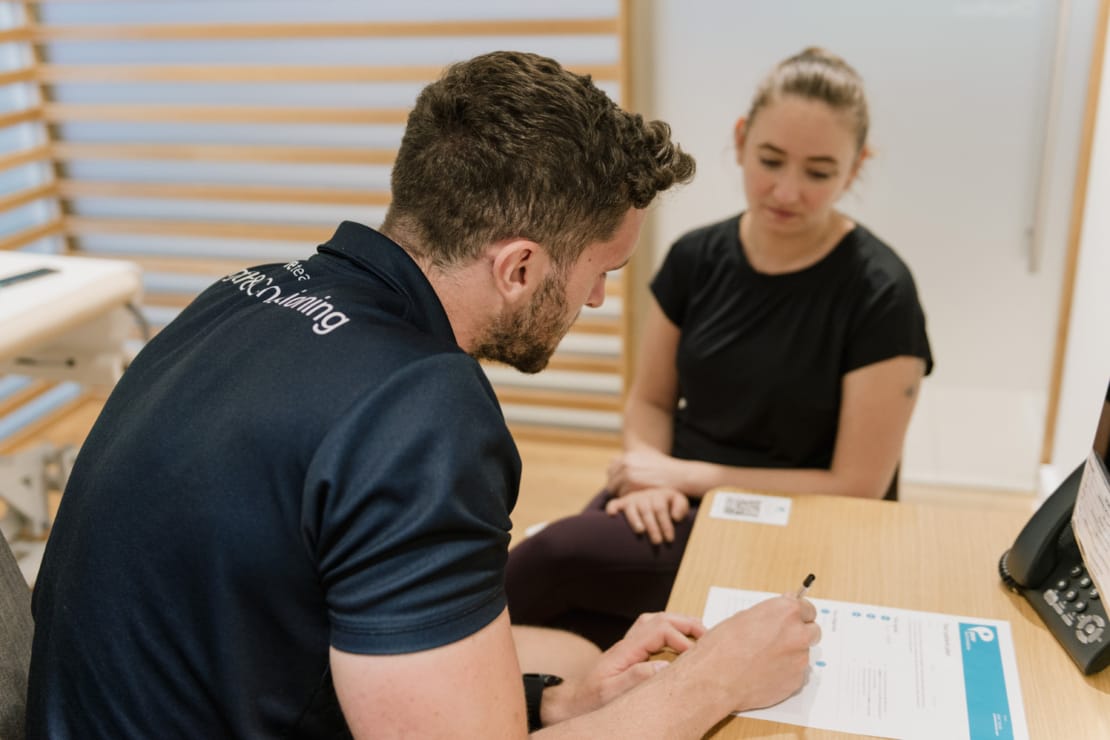Soft Tissue Therapy in Women’s Football: Benefits & Recovery

Craig Turner
Soft Tissue Therapist
- 28 August, 2024
- Women's Health
- Podiatry
- Soft Tissue Therapy
- Football
- 3 min read
Soft Tissue Therapy in Women's Football: Benefits & Recovery
As women’s football continues its rapid growth in popularity and professionalism, players face increased physical demands.
The sport’s physicality, coupled with rigorous training schedules, underscores the importance of injury prevention and recovery to sustain peak performance.
Soft tissue therapy has become a crucial element in managing the physical health of female footballers.
You might be wondering how soft tissue therapy can help you. In this blog, we’ll explain the significant benefits of soft tissue therapy, from enhancing performance, to injury prevention.

1. Enhanced Muscle Recovery
Football is a high-intensity sport that places significant strain on muscles, leading to microtears that require proper recovery to prevent injury. Soft tissue therapy, such as sports massage and myofascial release, plays a crucial role in accelerating muscle recovery.
By increasing blood flow to the affected areas, soft tissue therapy helps deliver oxygen and nutrients to muscles, facilitating faster healing and reducing the time needed to recover between games or training sessions.
A study published in the Journal of Athletic Training highlighted that massage therapy can effectively reduce muscle soreness and improve muscle function after strenuous exercise. This is particularly important for footballers, who often face tight competition schedules that demand quick turnaround times.
2. Injury Prevention
Injuries are a significant concern in football, where the intensity and physical demands can lead to strains, sprains, and overuse injuries.
Soft tissue therapy addresses muscle imbalances and tightness that are often precursors to injury. Regular sessions can help identify and correct these imbalances before they develop into more severe issues.
Research in the British Journal of Sports Medicine has shown that preventative massage can reduce the incidence of injuries in athletes by maintaining muscle flexibility and preventing adhesions. For female footballers, who may experience different injury patterns compared to their male counterparts due to anatomical and physiological differences, soft tissue therapy offers a tailored approach to injury prevention.
3. Improved Flexibility and Range of Motion
Flexibility is crucial in football because players frequently need to change direction quickly, sprint, and perform dynamic movements.
Soft tissue therapy improves flexibility and range of motion by relieving tension in the muscles and fascia – the connective tissue that encases them. Techniques such as myofascial release, trigger point therapy, and muscle energy techniques (METs) are commonly used to achieve this. By reducing muscle and fascia tension, soft tissue therapy promotes smoother, more efficient movement and helps lower the risk of injury during intense physical activities.
A study conducted by the Journal of Strength and Conditioning Research found that soft tissue therapy significantly improved athletes’ range of motion, which is critical for performance in sports that require agility and quick reflexes.

4. Reduction in Muscle Soreness (DOMS)
Delayed Onset Muscle Soreness (DOMS) is a common issue for footballers, especially after intense matches or training sessions. This soreness, typically felt 24 to 48 hours after exercise, can hinder subsequent performance and training.
Soft tissue therapy is effective in reducing DOMS by promoting circulation and lymphatic drainage, which helps clear out metabolic waste products like lactic acid.
The Journal of Sports Rehabilitation reports that techniques such as massage and foam rolling can significantly alleviate the symptoms of DOMS, enabling players to maintain high levels of performance with less discomfort.
5. Mental Well-being and Stress Reduction
The psychological demands of professional football can be immense, with pressure to perform, media scrutiny, and the stress of competition all taking a toll on players’ mental health.
Soft tissue therapy not only addresses physical symptoms but also has a calming effect on the nervous system, promoting relaxation and reducing stress levels.
A study published in The Journal of Alternative and Complementary Medicine demonstrated that massage therapy can effectively reduce stress and anxiety, which are common in athletes under intense pressure. For female footballers, who may face unique stressors such as balancing sport with other life responsibilities, soft tissue therapy offers a holistic approach to maintaining both physical and mental health.
Soft tissue therapy has become an indispensable tool in the world of women’s football. By enhancing muscle recovery, preventing injuries, improving flexibility, reducing soreness, and promoting mental well-being, incorporating regular soft tissue therapy sessions weekly or biweekly can play a critical role in helping footballers achieve and maintain peak performance.
As the sport continues to grow and evolve, the integration of soft tissue therapy into regular training and recovery routines will likely become even more important in supporting the health and success of female athletes.

References
- Journal of Athletic Training, “Effectiveness of Massage Therapy in Reducing Muscle Soreness and Improving Muscle Function,” 2018.
- British Journal of Sports Medicine, “Preventative Massage for Athletes: Reducing the Incidence of Injuries,” 2019.
- Journal of Strength and Conditioning Research, “Soft Tissue Therapy and its Impact on Range of Motion in Athletes,” 2020.
- Journal of Sports Rehabilitation, “Techniques for Reducing Delayed Onset Muscle Soreness,” 2017.
- The Journal of Alternative and Complementary Medicine, “Massage Therapy for Stress and Anxiety Reduction,” 2021.

Advice
Over the last 20+ years our experts have helped more than 100,000 patients, but we don’t stop there. We also like to share our knowledge and insight to help people lead healthier lives, and here you will find our extensive library of advice on a variety of topics to help you do the same.
OUR ADVICE HUBS See all Advice Hubs

